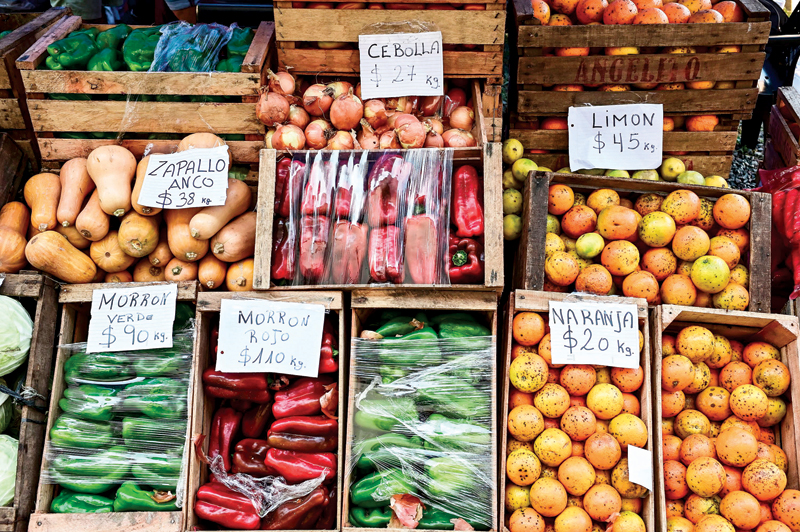

TIGRE: With Argentina suffocated by debt, the government has turned to food stamps, price controls and popular markets to alleviate the suffering of its 10 million poor, but there are no guarantees these measures will stem the ravages of recession.
Maria Benitez is a mother of six whose husband finds short-term off-the-books work where he can. She struggles to put food on the table for her family.
For this housewife from the Benavides suburb of Buenos Aires, even buying the bare necessities is beyond her reach.
“You need a lot of money” just to shop in a supermarket, she said.
That’s why she travelled to the nearby city of Tigre and queued for hours under the baking summer sun with a four-month-old baby in her arms to get a government card that will allow her to buy food.
When assuming the presidency two months ago, centre-left Peronist Alberto Fernandez said “those with the least” would be his top priority.
Argentina has been in recession since the second half of 2018 with poverty reaching 35 per cent of the population in the first quarter of 2019 and inflation now over 50 per cent.
Fernandez reacted by freezing the price of fuel and certain public services, and controlling the price of various products while launching an application that allows users to locate the shops selling cheaper goods.
The government has also begun distributing 1.4 million electronic food cards worth up to 6,000 pesos ($90) a month to spend on food, which should benefit more than two million people, including pregnant women, families without formal employment and with children under six years of age.
It’s an “emergency measure,” Social Development Minister Daniel Arroyo said. It will cost the government seven billion pesos a month and “will last all this year and certainly a lot longer.”
According to Fernandez, sales of milk declined 30 per cent during the 2015-19 government of his market-friendly liberal predecessor Mauricio Macri.
Beef consumption — a staple for Argentines — dropped 9.5 per cent in 2019, according to official statistics.
For Fernando de la Fuente, a 28-year-old part-time labourer with a young son, the food card has come “just in time.”
“That’s what we need the most... milk, beef, chicken. The essentials,” he said after picking up his card in Lomas de Zamora, close to Buenos Aires.
“The government faces a huge challenge: improve economic activity without spending... it’s at a crossroads,” said Matias Rajnerman, chief economist at the Ecolatina consultancy.
Rajnerman said the effectiveness of the emergency measures will depend on Argentina’s ability to renegotiate its external debt, which stands at over 90 per cent of GDP, because the government needs “a larger margin to spend” and earn “greater credibility” in the markets in order to reduce inflation.
The government is hoping to renegotiate $195 billion out of a total debt of $311 billion — according to the latest official figures — including a deeply unpopular $44 billion bailout loan from the International Monetary Fund (IMF) in 2018. According to the IMF, the government’s measures “are heading in the direction of restoring macroeconomic stability and protecting the poor.”
While the food cards and price freezes are aimed at easing the pain for consumers, popular markets are designed to boost small businesses.
The markets sell bread, vegetables, honey and jams with the idea of encouraging people to shop there rather than in supermarkets owned by big businesses with rich owners.
However, student Elizabeth Ortiz, a mother of two, says she goes “where you have the best prices.”
“At this juncture, everything’s delicately poised,” said Rajnerman. “It wouldn’t be logical to hope for a significant reduction in poverty” over the coming months. — AFP
Oman Observer is now on the WhatsApp channel. Click here



